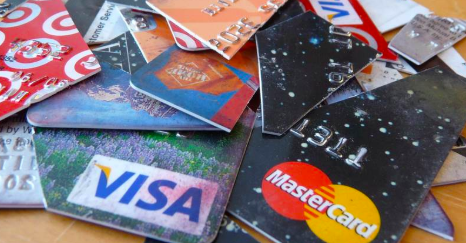
Did you know that it is nearly 61 years since the first successful recognizably modern credit card – the BankAmericard – was introduced? It was not until 8 years later, in 1966, that Barclaycard launched in the UK the first credit card outside the USA.
Credit cards have been controversial from the outset because of the potential harms that arise from customers running up a level of debt with ever-mounting interest charges that they cannot possibly service. Now, the continued use of credit cards for online gambling is firmly under the vigilant eye of the UK’s Gambling Commission. It has recently announced that commencing in mid-August 2019, it will be holding a twelve-week consultation on the issue of gambling online with credit cards.
In many ways, it’s a surprise that it has taken so long for the Commission to focus its attention on credit cards, with concern first being properly flagged up as recently as March 2018 when it published its Review of Online Gambling report, that included advice from the Responsible Gambling Strategy Board (RGSB) to the effect that gambling with borrowed money (including with a credit card) is well-established as a risk factor for harmful gambling.
In that report, the Commission outlined its support for the principle that consumers should not gamble with money they do not have, saying that it would consider restricting or prohibiting the use of credit cards for gambling but would, first of all, explore the consequences of doing so “by conducting further work in this area”.
That work commenced in February this year with a call for evidence on gambling online with credit cards in which the Commission sought “meaningful input to help determine if restrictions, potentially including an outright ban, are necessary to limit risks to consumers” and invited information that would enable it to develop “a comprehensive picture of gambling with credit cards, including the scale of their use for gambling and the risks associated”.
It also invited provision of “evidence of effective harm prevention measures that might serve as robust alternatives to prohibiting or restricting gambling with credit cards. These might include, for example, the full rollout of card-blocking facilities that enable consumers to block gambling transactions via their credit cards, or imposing account limits until operators have verified further information about the customer (for example, assessing the levels of gambling spend the customer might be able to afford), if such controls are demonstrably effective”.
When announcing the forthcoming consultation, the Commission said that its call for evidence had provided several key interest points around the use of credit cards to gamble online, including:
- Alternative forms of borrowing:if action is taken on credit cards alone then consumers experiencing harm may use other forms of borrowing to fund their gambling, such as overdrafts and loans, adding that “it is therefore vital that the financial and gambling sectors work to protect customers from harm where they gamble with other forms of borrowed money”.
- E-Wallets: where online gambling deposits are made through some e-wallets, operators have no means of knowing which method the payment originated from, commenting that “any future proposals would, therefore, require e-wallet providers to take the necessary action to support any regulatory measures introduced”.
- Further evidence: the Commission wants to obtain further evidence about consumers’ motivations for using credit cards to gamble, and any specific benefits of using them, stating that “the call for evidence highlighted very little in this regard”.
Importantly, the Commission stated that in aiming to prevent harm from gambling with credit cards, it is clear that it must take account of the impact of a ban or restrictions on gamblers who are not experiencing gambling harms.
Going back once again to the history book, when advising the Labour Government on future gambling policy in 2001, the Gambling Review Body (“Budd”) Report proposed that credit cards should be approved for gambling purchases with the exception of direct use in gaming machines.
That was considered a bit too revolutionary, as a result of which the consequential Gambling Bill was amended in February 2005 to ensure that, in the words of Lord McIntosh of Haringey: “customers in [land-based] casinos should not be able to turn to their credit card if they have used up their available cash in their wallet or on their debit card”. This led to what is now the restriction on the offering of credit for land-based casino and bingo operators, contained in section 81 of the Gambling Act 2005.
In retrospect, it is surprising that greater focus was not directed at the use of credit cards for online gambling then, given that:
- in its submission on the Bill, entitled “Gambling with our Future”, the Christian Institute had said: “credit card use is intrinsic to remote gambling. Not only do credit cards allow gamblers to spend more than they can afford, the absence of hard cash emptying from their pockets distances the gambler from the scale of their losses” adding that “it is thus a dangerous anomaly that the use of credit cards is to remain prohibited in casinos, yet is to be endorsed through licensed on-line casinos”; and
- just months earlier, two major credit card companies (American Express and Citigroup) had taken steps to prevent their customers from using their cards to gamble online because of concerns over fraud and fears that people might run up debts.
However, times have changed in the 14 years since then. Last year:
- in its above-mentioned advice to the Commission, the RGSB suggested that, compared with the risk associated with use of credit cards for in-venue gambling, “the risk is potentially greater in online, because of the greater accessibility it offers and how people view virtual representations of money compared with physical cash”;
- as part of its plan to radically overhaul gambling regulation and advertising, the Labour Party made clear (in its “Review of Problem Gambling and its Treatment” report) its belief that people should not have access to easy credit and debt to finance problem gambling behaviour, stating that “using credit cards heightens the risk that you will bet more than you can afford and therefore we believe that credit card betting should be banned”; and
- commenting on the Labour Party’s proposal, the com website quoted its CEO, Alastair Doglas, as saying: “A blanket ban on the use of credit cards would be a massive win for consumers. For regular purchases, people usually get an interest-free grace period, which doesn’t apply when credit is used to gamble ….. what’s more, a recent report by the Gambling Commission says up to £8.6 billion of gambling deposits are made using credit cards. Assuming an average cash transaction fee of 3.23% and an average cash advance interest rate of 28.13%, we calculated that consumers stand to save £545 million each year on fees and interest“.
As a consequence of all that I say above, it is my view that in the absence of a good convincing argument otherwise being advanced in response to the forthcoming consultation, a credit card ban is likely to be imposed for gambling online because:
- it will be considered anomalous that a distinction should remain between the use of credit cards for (a) gambling online and (b) gambling within land-based premises; and
- such a ban would be a logical extension of the Gambling Commission’s present stance as guardian not only of the vulnerable but also all those who might possibly become vulnerable in the future.
So what can be done to prevent the imposition of such a ban?
In my view, opponents to a ban should focus their attention on the Commission’s express invitation for evidence about consumers’ motivations for using credit cards to gamble and any specific benefits of using them. That invitation has been issued against a background of operators indicating to the Commission that credit card payments amount to no more than between 10% and 20% of deposits, which may explain why some in the online sector consider that a more important battleground for them lies in the area of affordability check requirements (an issue on which I commented in my February 2019 Licensing Expert article for SBC).
However, addressing that question alone is unlikely to be enough. If a credit card ban is to be avoided, I am not alone in believing that additional strong arguments will need to be deployed. The adoption of more risky and higher cost payment methods such as pay-day loans has already been flagged up as a concern by the Commission. What about addressing such questions as:
- Does customer use of credit cards better enable identification of problem gambling indicators?
- Should financial institutions be doing more to implement gambling harm-minimisation strategies, complementing interventions provided by gambling operators?
- Should all credit card issuers and payment processing networks be assuming greater responsibility, for example by making available gambling spend blocking tools?
- Should all online gambling operators voluntarily offer their customers blocking software such as Gamban?
In April this year, Jeremy Wright MP (the then Secretary of State for Digital, Culture, Media and Sport) said in response to a Parliamentary question concerning the use of credit cards for online gambling: “It is very clear that those who are gambling with money they do not have to find themselves very quickly in very serious trouble …. the Gambling Commission is at the moment looking at the specific question of gambling on credit. That is a process we have encouraged. I look forward very much to its conclusions. The Government intend to take action on the back of what it says.”
It’s clearly time for opponents of a credit card ban to put on their serious thinking caps.
_________________________
David Clifton – Director – Clifton Davies Consultancy Limited










